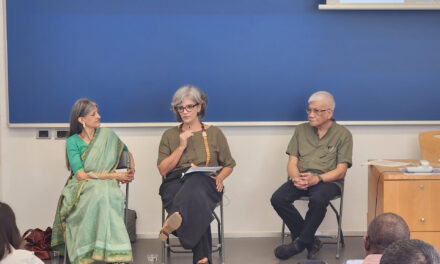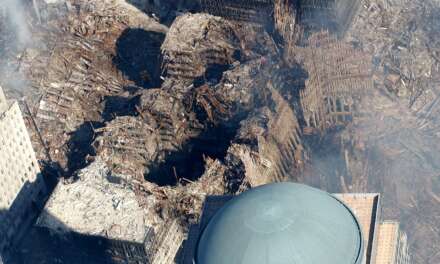The first time Indian troops died on Iraqi soil was while fighting for the British Empire during the First World War. Indians being colonized during the First World War had hardly any say with respect to deployment of their “Indian Labour Corps” or of the “Indian Bullock Corps” who went to Iraq to fight for George V.
Today, Indians are in a very funny situation. In spite of having the political right to veto the deployment of Indian soldiers to fight for King George Bush II and his Viceroy L. Paul Bremmer III, they are being pushed by various domestic and external forces to sacrifice this right.
The Indian Big Business and their Confederations are trying to persuade the Indian political mandarins that they have to learn to live with the US (if not sleep with it or dine with it) and get as much business for industries back home during so-called reconstruction of Iraq. Although Parties in the Opposition had pushed the Government to take a very strong line against the US’ destruction of Iraq, they are not seen to be very keen to take the same line when it comes to deployment of Indian forces in Iraq.
So far, the debate in India has revolved around the question of whether it is acceptable for Indian soldiers to take orders from US commanders. Indian troops have functioned before under the command of foreign generals, but always within the context of a formally mandated UN force. In Somalia, so long as the US led its own peace-keeping force (Unitaf) — which quickly degenerated into a deadly manhunt for General Aidid, endangering Somali civilians and peacekeepers alike — India refrained from joining.
But hardly has there been any discussion within political parties on the fate of the Indian soldiers who would be exposed to the spectre of radiation hazards from depleted uranium dispersed by anti-tank projectiles and other kinetic energy projectiles during the two Gulf Wars. A field study by two Indian experts of Action Aid and UK-based NGO says “that depleted uranium that goes into the making of kinetic projectiles… has already killed and maimed for life thousands of Iraqis, besides being the cause of a number of diseases.”
In fact “Planet Earth – The Latest Weapon of War” by Rosalie Bertell quotes news reports citing secret reports of International Atomic Energy Authority warning that the depleted uranium weapons used during the first Gulf War had left at least 40 tonnes of radioactive dust on the battlefields of Kuwait and Iraq.
It is not that the Home Minister, L. K. Advani or others who are inclined towards sending Indian troops in Iraq are not aware of such findings. They are also aware of the fact that the call for troops from India is an act of desperation by the Bush administration, which is hoping that others will dig it out of a hole that is deepening by the day. But they are keen to go ahead with the deployment as they visualize the following positive fallout of their actions:
(a) By sending troops to Iraq, the Government would give a clear signal to Indian Big Business that it is ready to go to any limits to gain market access for them.
(b) Furthermore, it is also trying to send a message across to the Muslim Community in India that the Government is keen to protect Muslim and Arab interests in the region by actively participating in the so-called reconstruction process.
It is a challenge for the peace and the anti-war movement in India to make the Vajpayee government respect the Parliament resolution calling for the immediate withdrawal of US forces from Iraq. It also needs to communicate in clear terms that the demand for withdrawal of US troops does not provide a license to India to replace them by their Indian counterparts. To send troops to enforce an occupation explicitly condemned by Parliament would indeed make a mockery of our democracy.
If we fail then we would be answerable to widows and children living with cancer.

![[FS4P] Social Movements and Indigenous Peoples Oppose the UN Food Systems Summit and Call for True Food Systems Change](https://focusweb.org/wp-content/uploads/2023/07/Featured-image-1024x461-1-440x264.png)







